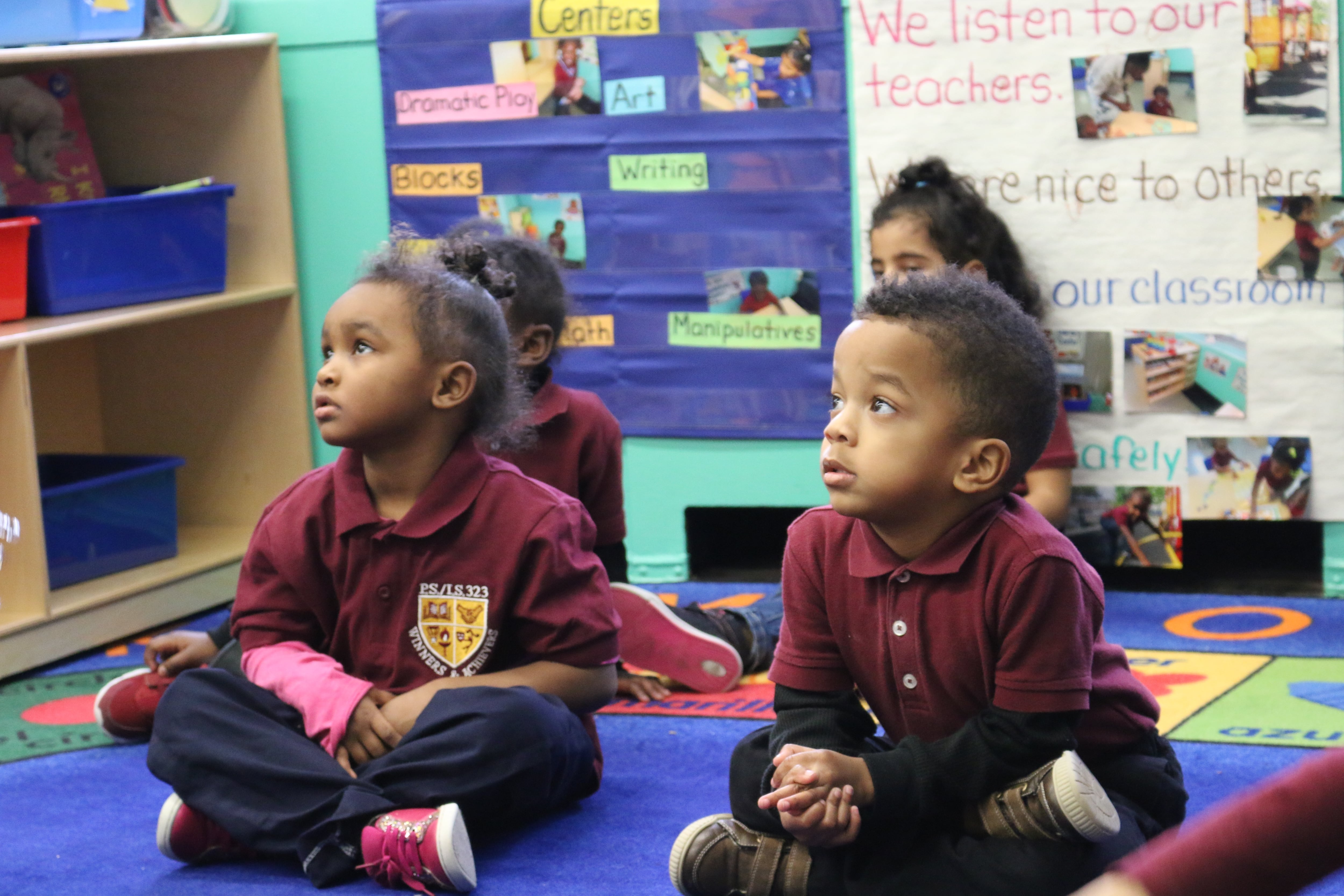Mayor Eric Adams is not planning to expand New York City’s free prekindergarten program for 3-year-olds next year, as city agencies are facing calls to cut back on spending, education department officials confirmed Wednesday.
City officials are planning to divert $568 million in federal COVID relief money that had been earmarked for 3-K expansion over the next two fiscal years to use elsewhere for the education department, Emma Vadehra, the school system’s chief operations officer, said during a Wednesday City Council hearing. Instead, funding for 3-K will hold steady from this year, she said, allowing the education department to meet “a very large portion” of savings goals set out by Adams, which he’s also required of other city agencies.
Former Mayor Bill de Blasio had planned to use stimulus money to create 60,000 seats for the city’s 3-year-olds and make 3-K universal by September 2023. But the Adams administration has stepped back from that promise.
As of this fall, the city had planned to open 55,000 3-K seats, for a total budget of $711 million. About two thirds of that is covered by stimulus dollars, according to a City Hall spokesperson. But at the same time, about 36,500 children have enrolled.
A spokesperson for City Hall did not detail how officials plan to repurpose the money intended for 3-K, except for saying that it will go toward “central costs” at the education department.
Under de Blasio, city officials planned to use the largest pot of the education department’s $7 billion in COVID stimulus dollars on expanding preschool for 3-year-olds. But the former mayor never laid out how the city would pay for the program once those temporary dollars ran out. Neither has Adams, setting up the city for a $376 million funding shortfall for 3-K by July 2025. That sum has raised concerns among budget watchdogs, including the city and state comptrollers.
Cutting back on an expansion of 3-K could help the city avoid a fiscal cliff for that program. However, repurposing those stimulus dollars for other initiatives could still require the city to either find more money for those additional services or make cuts.
Several local lawmakers and advocates expressed anger over the city’s decision to halt 3-K expansion and said that there was still demand for seats in various pockets of the city.
Asked multiple times during Wednesday’s hearing when the city would make 3-K universal, department officials did not provide a direct answer, instead pointing out that thousands of seats have not been filled.
“The issue is making sure we have those seats as close as possible to families who need them,” said James Morgano, manager of expansion at the city’s Division of Early Childhood Education. He said the city is conducting an assessment of where those seats should be.
Brooklyn Council member Lincoln Restler questioned why he hears from so many families in Greenpoint who have been unable to find a 3-K seat. Restler blamed lack of demand on insufficient outreach to families from the education department.
“If this administration is not prepared to put the funding in, then I strongly encourage my colleagues in the council to step up and make this the priority that it needs to be,” Restler said during the hearing. “Working families and our youth depend on high-quality early childhood education, and if you all aren’t prepared to make it happen, then we need to take it into our own hands.”
Gregory Brender, public policy director for the Day Care Council, said they see “incredible demand” from parents in neighborhoods where the city has expanded 3-K.
“It would be devastating to a lot of neighborhoods to know that they’re not gonna have the opportunity to see 3-K expanded, as has been in other parts of the city,” Brender said.
In a note to superintendents on Wednesday discussing plans for 3-K, department officials wrote that the Adams administration has “emphasized the importance of continuing to work with our city, state and federal partners to develop a proposal for early childhood education resources“ for when stimulus dollars run out.
The plan to pare back on expansion is another example of how early childhood education programming is changing under Adams, who campaigned on focusing more on “birth-to-5” programming. During Adams’ tenure so far, the city has come under fire for failing to pay preschool providers. Officials have also faced pushback for plans to reassign hundreds of early childhood workers who provided extra instructional and social-emotional support to classrooms serving the city’s youngest learners.
Reema Amin is a reporter covering New York City schools with a focus on state policy and English language learners. Contact Reema at ramin@chalkbeat.org.







